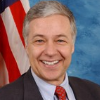A variety of broad U.S. employment-related measures for veterans have been instituted since 1940, when the Selective Training and Service Act was authorized, guaranteeing re-employment rights to everyone who left a position to join the Armed Forces, the most well-known being the G.I. Bill of Rights. President Franklin D. Roosevelt signed it in 1944, and it has contributed more than any other program in history to the welfare of veterans, training, to some degree, 7.8 million individuals. Over the years many additional acts and bills have also been passed regarding veterans and training and employment, built around whichever war U.S. service people were engaged in at the time. In 1974, VETS was established, under the Employment Training Administration (ETA) umbrella, as an office to focus specifically on education and training for veterans, and ten years later it became an independent agency, with its own Assistant Secretary. Since then, it has been one of several government units, including the Department of Veterans Affairs and the Small Business Bureau, addressing and executing improvement of employment, training and other work-force issues and scenarios for veterans.
- e-VETS Resource Advisor, an interactive webpage that contains job search tools and tips, employment openings, and information on rights and benefits, along with many other options to research for personalized results.
- Homeless Veterans Reintegration Program, which provides employment assistance that specializes in outreach, supportive services, and training for homeless veterans, to guide them in making their way back into the workforce, and also provides funding for operators of the services.
- Veterans’ Workforce Investment Program, which provides competitive grants geared toward focused training, re-training and employment opportunities for veterans, to meet the needs of employers for qualified workers in high demand industries.
- The Recovery and Employment Assistance Lifelines (REALifelines) initiative, a joint project of the U.S. Department of Labor, the Bethesda Naval Medical Center, and the Walter Reed Army Medical Center, which provides personalized assistance to severely injured service members who cannot return to active duty, helping get them the proper counseling and training so they can effectively launch new careers in the private sector.
- USERRA (Uniformed Services Employment and Re-Employment Rights Act of 1994), which sees to it that veterans and members of the National Guard and Reserve Forces can serve on active duty without harm later to their employment or benefits status.
- Federal Veterans Preference Enforcement, which works to ensure veterans entitled preference over others for virtually all federal jobs.
- Vets Guide to Competitive and Discretionary Grants (PDF), which explains what grants are available, who’s eligible, and how to apply.
- Jobs for Veterans State Grants, which provides funds to support Disabled Veterans’ Outreach Program specialists; Local Veteran’s Employment Representative Staff; Transition Assistance Program Employment Workshops; and emergency situations as they arise.
- Table of Contents
- Overview
- History
- What it Does
- Where Does the Money Go
- Controversies
- Suggested Reforms
- Comments
- Leave a comment

Former Congressman Michael Michaud was nominated on July 30, 2015, by President Barack Obama to be the next director of the Veterans’ Employment and Training Service, an agency within the Department of Labor. The Senate approved his nomination on Nov. 19.
Michaud was born Jan. 18, 1955, in Millinocket, Maine, one of six children of James and Geneva “Jean” Michaud. He lived in nearby Medway and attended Schenck High School, where he was in the chess club and was a manager for the basketball team, graduating in 1973. Like his father and his grandfather, Michaud went to work in the local paper mill, which was owned by Great Northern Paper Co. He moved up to be a supervisor and was also active in union affairs, at one point being elected vice president of the paper workers’ local.
Michaud got into politics a few years later because of a local issue—he saw that the mill in which he worked was polluting the nearby Penobscot River. Michaud ran for a seat in the Maine House of Representatives and won, serving there from 1980 to 1994, championing environmental issues. In 1994, he ran for and won a seat in the Maine Senate and in 2002 served as that body’s president pro tem.
Michaud made the jump to national politics that year, running for Congress from Maine’s Second Congressional District. The race was an odd one: Michaud ran as an anti-abortion Democrat and faced a pro-choice Republican, Kevin Raye, the former chief of staff for Maine Sen. Olympia Snowe. Michaud, who speaks French, won the election, which was the closest one he had in his congressional career. He became the first Franco-American elected to federal office from Maine. He easily won his subsequent contests for that seat.
As Michaud served in Congress, his position on abortion rights evolved until NARAL Pro-Choice America by 2010 had given him its 100% rating.
Much of Michaud’s congressional career was spent working for veterans. He served on the Veterans Affairs Committee, working especially on bringing improved health care to rural veterans, a vital part of his constituency. He called for then-VA Secretary Eric Shinseki to resign when VA facilities were found to have long, secret waiting lists for patients to receive treatment.
Late in 2013, as he was beginning his campaign aimed at unseating Maine’s Republican governor, Paul LePage, Michaud came out as gay. He did it, he said, because there were rumors about his sexual orientation and he wanted it not to be an issue in the election. His orientation was not a major factor in the election, but Michaud lost anyway, mainly because he and independent candidate Eliot Cutler split the anti-LePage vote and the incumbent won with a plurality of the ballots cast.
-Steve Straehley

President Obama has nominated an Army veteran who has been a state-level labor official to serve as the next Assistant Secretary of Labor for Veterans’ Employment and Training Services (VETS). Keith Kelly, who was awarded a Bronze Star for his service with the Army’s 101st Airborne Division, will serve as chief of VETS, an agency in the Department of Labor that provides resources and services to help veterans locate grants, training and employment opportunities, and to assure their right to return to a job after completion of military service. If confirmed by the Senate, Kelly will succeed Ray Jefferson, an Army veteran who served in the position from August 7, 2009, to July 26, 2011.
Born in Red Lodge, Montana, circa 1945, Kelly earned a B.S. in Agriculture Business and an M.S. in Economics and Agriculture Economics at Montana State University.
He served as director of the Montana Agriculture Department from 1983 to 1989, and as head of the Arizona Agriculture Department from 1990 to 1997. He served in the federal government from 1997 to 2001 as administrator of the Farm Service Agency and executive vice president of the Commodity Credit Corporation at the United States Department of Agriculture. Back in the private sector after the 2000 elections, Kelly was president of his own firm, Kelly & Associates, LLC, from 2001 to 2002.
He returned to Montana state government to serve as administrator for the Unemployment Insurance Division of the Montana Department of Labor & Industry (DLI) from 2002 to 2004. He has served as commissioner of the DLI since January 2005, when Governor Brian Schweitzer appointed him. Kelly’s grandfather, John Thomas Kelly, served as commissioner of DLI’s predecessor agency, Montana’s Department of Agriculture, Labor and Industry, from 1939-1941.
Kelly served as chair and vice chair of the Veterans Affairs Committee of the National Association of State Workforce Agencies from 2009 to 2010.
A Democrat, Kelly donated $500 to the Democratic National Committee in 2004 and $250 to the Montana Democratic Central Committee in 2009.
-Matt Bewig
- Latest News
- D.C. Public Schools will Teach all Second-Graders to Ride a Bike
- New Rule in Germany Limits Sales of Sex-Themed E-Books to 10pm to 6am
- What Happened to the 6-Year-Old Tibetan Boy the Chinese Government Kidnapped 20 Years Ago?
- U.S. Ambassador to Turkey Photoshops his Hair Color to Mock Turkish Mayor
- Mystery Artist Calls Attention to Unfixed Potholes by Drawing Penises around Them
A variety of broad U.S. employment-related measures for veterans have been instituted since 1940, when the Selective Training and Service Act was authorized, guaranteeing re-employment rights to everyone who left a position to join the Armed Forces, the most well-known being the G.I. Bill of Rights. President Franklin D. Roosevelt signed it in 1944, and it has contributed more than any other program in history to the welfare of veterans, training, to some degree, 7.8 million individuals. Over the years many additional acts and bills have also been passed regarding veterans and training and employment, built around whichever war U.S. service people were engaged in at the time. In 1974, VETS was established, under the Employment Training Administration (ETA) umbrella, as an office to focus specifically on education and training for veterans, and ten years later it became an independent agency, with its own Assistant Secretary. Since then, it has been one of several government units, including the Department of Veterans Affairs and the Small Business Bureau, addressing and executing improvement of employment, training and other work-force issues and scenarios for veterans.
- e-VETS Resource Advisor, an interactive webpage that contains job search tools and tips, employment openings, and information on rights and benefits, along with many other options to research for personalized results.
- Homeless Veterans Reintegration Program, which provides employment assistance that specializes in outreach, supportive services, and training for homeless veterans, to guide them in making their way back into the workforce, and also provides funding for operators of the services.
- Veterans’ Workforce Investment Program, which provides competitive grants geared toward focused training, re-training and employment opportunities for veterans, to meet the needs of employers for qualified workers in high demand industries.
- The Recovery and Employment Assistance Lifelines (REALifelines) initiative, a joint project of the U.S. Department of Labor, the Bethesda Naval Medical Center, and the Walter Reed Army Medical Center, which provides personalized assistance to severely injured service members who cannot return to active duty, helping get them the proper counseling and training so they can effectively launch new careers in the private sector.
- USERRA (Uniformed Services Employment and Re-Employment Rights Act of 1994), which sees to it that veterans and members of the National Guard and Reserve Forces can serve on active duty without harm later to their employment or benefits status.
- Federal Veterans Preference Enforcement, which works to ensure veterans entitled preference over others for virtually all federal jobs.
- Vets Guide to Competitive and Discretionary Grants (PDF), which explains what grants are available, who’s eligible, and how to apply.
- Jobs for Veterans State Grants, which provides funds to support Disabled Veterans’ Outreach Program specialists; Local Veteran’s Employment Representative Staff; Transition Assistance Program Employment Workshops; and emergency situations as they arise.
Comments

Former Congressman Michael Michaud was nominated on July 30, 2015, by President Barack Obama to be the next director of the Veterans’ Employment and Training Service, an agency within the Department of Labor. The Senate approved his nomination on Nov. 19.
Michaud was born Jan. 18, 1955, in Millinocket, Maine, one of six children of James and Geneva “Jean” Michaud. He lived in nearby Medway and attended Schenck High School, where he was in the chess club and was a manager for the basketball team, graduating in 1973. Like his father and his grandfather, Michaud went to work in the local paper mill, which was owned by Great Northern Paper Co. He moved up to be a supervisor and was also active in union affairs, at one point being elected vice president of the paper workers’ local.
Michaud got into politics a few years later because of a local issue—he saw that the mill in which he worked was polluting the nearby Penobscot River. Michaud ran for a seat in the Maine House of Representatives and won, serving there from 1980 to 1994, championing environmental issues. In 1994, he ran for and won a seat in the Maine Senate and in 2002 served as that body’s president pro tem.
Michaud made the jump to national politics that year, running for Congress from Maine’s Second Congressional District. The race was an odd one: Michaud ran as an anti-abortion Democrat and faced a pro-choice Republican, Kevin Raye, the former chief of staff for Maine Sen. Olympia Snowe. Michaud, who speaks French, won the election, which was the closest one he had in his congressional career. He became the first Franco-American elected to federal office from Maine. He easily won his subsequent contests for that seat.
As Michaud served in Congress, his position on abortion rights evolved until NARAL Pro-Choice America by 2010 had given him its 100% rating.
Much of Michaud’s congressional career was spent working for veterans. He served on the Veterans Affairs Committee, working especially on bringing improved health care to rural veterans, a vital part of his constituency. He called for then-VA Secretary Eric Shinseki to resign when VA facilities were found to have long, secret waiting lists for patients to receive treatment.
Late in 2013, as he was beginning his campaign aimed at unseating Maine’s Republican governor, Paul LePage, Michaud came out as gay. He did it, he said, because there were rumors about his sexual orientation and he wanted it not to be an issue in the election. His orientation was not a major factor in the election, but Michaud lost anyway, mainly because he and independent candidate Eliot Cutler split the anti-LePage vote and the incumbent won with a plurality of the ballots cast.
-Steve Straehley

President Obama has nominated an Army veteran who has been a state-level labor official to serve as the next Assistant Secretary of Labor for Veterans’ Employment and Training Services (VETS). Keith Kelly, who was awarded a Bronze Star for his service with the Army’s 101st Airborne Division, will serve as chief of VETS, an agency in the Department of Labor that provides resources and services to help veterans locate grants, training and employment opportunities, and to assure their right to return to a job after completion of military service. If confirmed by the Senate, Kelly will succeed Ray Jefferson, an Army veteran who served in the position from August 7, 2009, to July 26, 2011.
Born in Red Lodge, Montana, circa 1945, Kelly earned a B.S. in Agriculture Business and an M.S. in Economics and Agriculture Economics at Montana State University.
He served as director of the Montana Agriculture Department from 1983 to 1989, and as head of the Arizona Agriculture Department from 1990 to 1997. He served in the federal government from 1997 to 2001 as administrator of the Farm Service Agency and executive vice president of the Commodity Credit Corporation at the United States Department of Agriculture. Back in the private sector after the 2000 elections, Kelly was president of his own firm, Kelly & Associates, LLC, from 2001 to 2002.
He returned to Montana state government to serve as administrator for the Unemployment Insurance Division of the Montana Department of Labor & Industry (DLI) from 2002 to 2004. He has served as commissioner of the DLI since January 2005, when Governor Brian Schweitzer appointed him. Kelly’s grandfather, John Thomas Kelly, served as commissioner of DLI’s predecessor agency, Montana’s Department of Agriculture, Labor and Industry, from 1939-1941.
Kelly served as chair and vice chair of the Veterans Affairs Committee of the National Association of State Workforce Agencies from 2009 to 2010.
A Democrat, Kelly donated $500 to the Democratic National Committee in 2004 and $250 to the Montana Democratic Central Committee in 2009.
-Matt Bewig
- Latest News
- D.C. Public Schools will Teach all Second-Graders to Ride a Bike
- New Rule in Germany Limits Sales of Sex-Themed E-Books to 10pm to 6am
- What Happened to the 6-Year-Old Tibetan Boy the Chinese Government Kidnapped 20 Years Ago?
- U.S. Ambassador to Turkey Photoshops his Hair Color to Mock Turkish Mayor
- Mystery Artist Calls Attention to Unfixed Potholes by Drawing Penises around Them






Comments